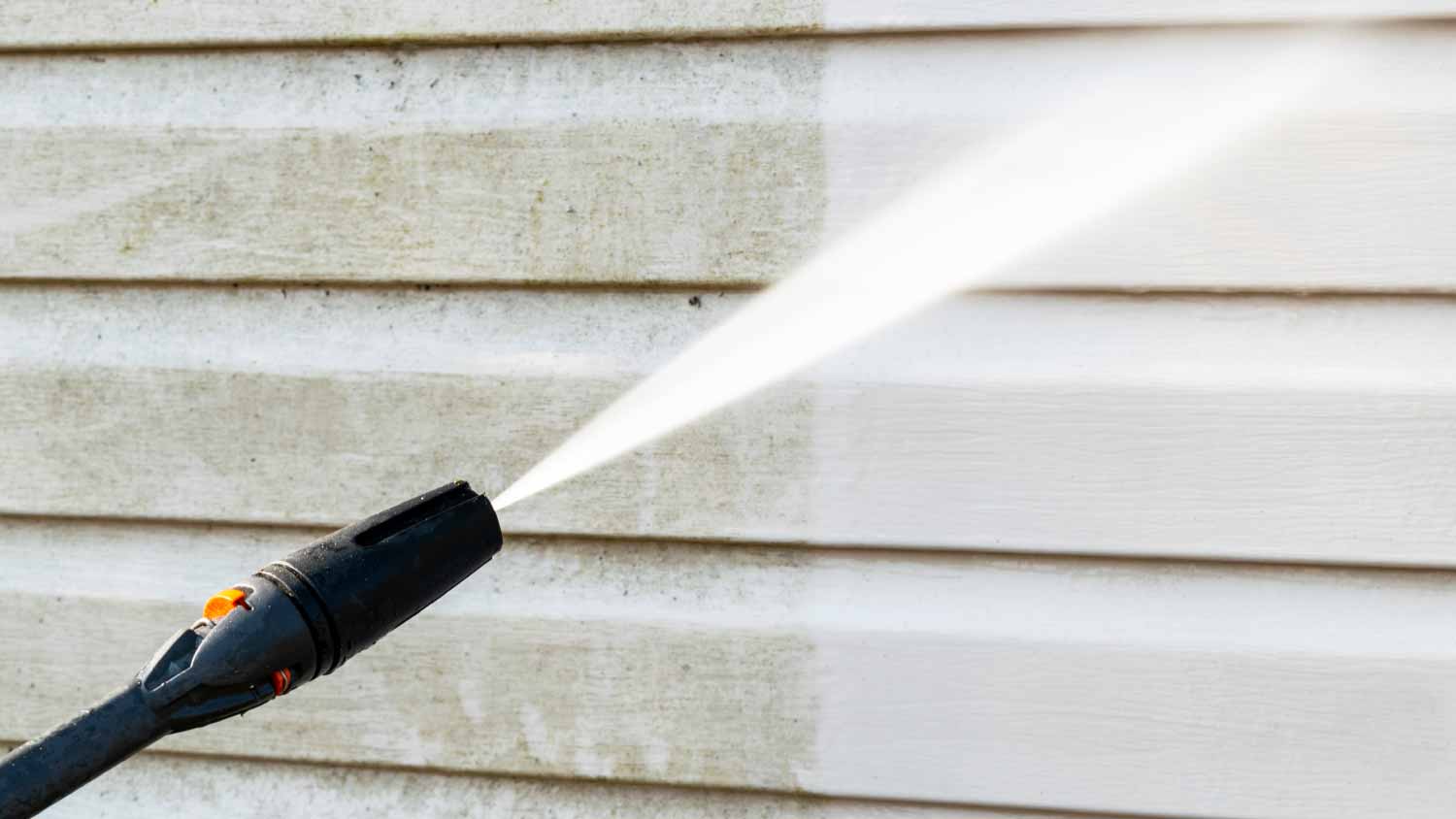
Discover how much wrought iron fence installation costs depending on factors like its size, thickness, design, and location.
You can clean a vinyl fence quickly and simply with basic household products


Many homeowners opt for vinyl fencing because it looks great with minimal maintenance. Vinyl can withstand all types of weather without rotting or warping, but vinyl still gathers dirt, stains, mold, and algae on its surface over time. This guide explains the best way to clean a vinyl fence without much impact on your time, wallet, or the environment.

Several cleaning solutions work on vinyl fences. You can buy specialty fence cleaning solutions or make your own. If washing by hand, an affordable way to effectively clean a fence’s crevices is to mix a gallon of warm water with a few squirts of dish soap. If using a pressure washer with a soap reservoir, avoid dish soap and opt for a soap specifically designed for pressure washers.
If the stains on your fence result from mold or mildew, add a 1/2 cup of white vinegar to your soap and water solution to kill the growth and slow its return. Avoid bleach solutions, even if you’re cleaning a white vinyl fence—bleach can harm not only your vinyl fence but also any surrounding plants and structures. Never use abrasive cleaners or scrubbing tools.
Use a garden hose with a spray nozzle to wet the fence and loosen any light soil and debris on the fence's surface. If you have a pressure washer, use a low-power spray setting instead. Keep your pressure washer nozzle at least 3 feet from the fence's surface.
Simply rinsing with water won't remove tough stains or grime from your fence. If you have a pressure washer, fill your washer's soap reservoir with your chosen cleaning solution. Apply the solution to the fence from bottom to top using the washer's soap nozzle.
If you don't have a pressure washer, skip to step three.
Try this step if you don't have a pressure washer or if your pressure washer didn't remove every stain. Use a soft-bristle brush or sponge to apply additional cleaning solution by hand. Scrub in sections, letting your solution sit for about three minutes before rinsing.
Use your garden hose to rinse any remaining cleaning solution. If you have a pressure washer, swap the soap nozzle for a 40-degree nozzle to flush any remaining detergent and rinse the fence.
If after rinsing, you still notice residual stains or grime, repeat steps two through four until your fence is completely clean.
Cleaning a vinyl fence is a simple project that can be done for less than $25 if you have the right tools. However, some may find that stains persist after their best cleaning attempts. Others may not wish to buy or rent a pressure washer. Purchasing a pressure washer can cost anywhere from $100 to $1,000 while renting costs $35 to $175 daily.
An alternative to the DIY approach is to contact a local fence repair company and ask about their cleaning services. Some house cleaners also offer pressure washing services that include fencing. The average cost to pressure wash a fence is about $225 when done professionally.
From average costs to expert advice, get all the answers you need to get your job done.

Discover how much wrought iron fence installation costs depending on factors like its size, thickness, design, and location.

Explore the key factors that impact vinyl fence installation costs in Columbus, OH, including labor, materials, permits, layout, design, and yard conditions.

Installing a redwood fence costs around $6,300, though several factors, such as size, landscaping, and permits, can impact the price.

Choosing a vinyl, PVC, or plastic fence offers benefits over wooden fencing, like improved durability. Learn about the many types of vinyl fencing available.

If you're wondering about the differences between a cedar vs. redwood fence, you’re in the right place. Our guide explores the pros, cons, and costs of both.

Are you a classic picket fence family or looking for a bit more privacy? From style to material, this guide helps you choose the best type of wood fencing for your home.